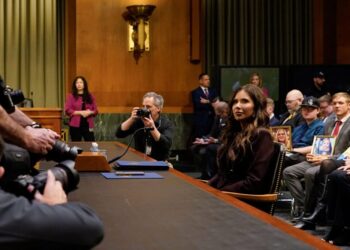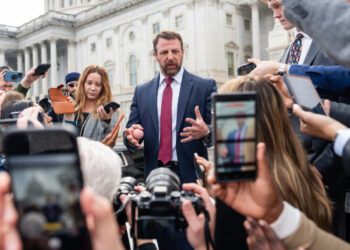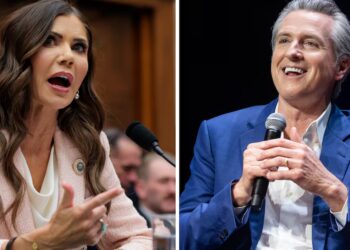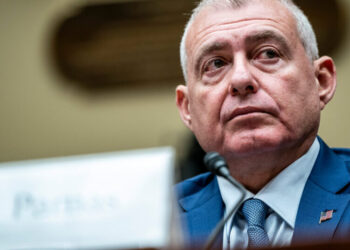Britney Spears Is Arrested on Suspicion of D.U.I. in California
Britney Spears was arrested on Wednesday on suspicion of D.U.I. after officers observed her driving erratically at high speeds, according...
Anthropic’s investors could be the key to ending its Pentagon standoff—but some investors have opposite views
In 2023, as Dario Amodei was fundraising for the company’s $750 million Series D round, an investor was seated with...
In defense of sugar
Robert F. Kennedy Jr. spent his first year as health and human services secretary suppressing medical innovation, and now he’s...
Costco CEO says any tariff refunds it gets will flow back to members through ‘lower prices and better values’
Costco is suing the US government for refunds of Trump's IEEPA tariffs. Kevin Carter/Getty ImagesCostco CEO Ron Vachris said the...
Kristi Noem was a nightmare for immigration hawks
Update: President Donald Trump announced Thursday he was firing his homeland security secretary, Kristi L. Noem, and nominating Sen. Markwayne...
Wilco announces 2026 tour, Forest Hills Stadium show. Get tickets now
Jeff Tweedy is pulling triple duty this year. This March and April, the 58-year-old rocker will embark on a solo...
Who Is Markwayne Mullin, Trump’s Pick for Homeland Security Secretary?
President Trump fired Kristi Noem as homeland security secretary on Thursday and said he would seek to install Senator Markwayne...
Newsom Rubs Salt in ‘Incompetent’ ICE Barbie’s Wound
Gavin Newsom could barely contain his excitement after President Donald Trump announced Homeland Security Secretary Kristi Noem was being booted...
Chris Cornell Wrote This Soundgarden Hit After His Producer ‘Strongly Urged’ Him Not to Write Music for Fans
After producer Michael Beinhorn helped the Red Hot Chili Peppers break out of their funk rock pigeonhole with Mother’s Milk...
These airlines are sending rescue flights to the Middle East, where thousands of travelers remain stuck
Several airlines are flying select flights to and from the UAE. Flightradar24The UAE has partially opened its skies, allowing airlines...














